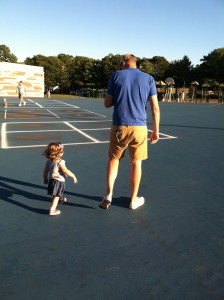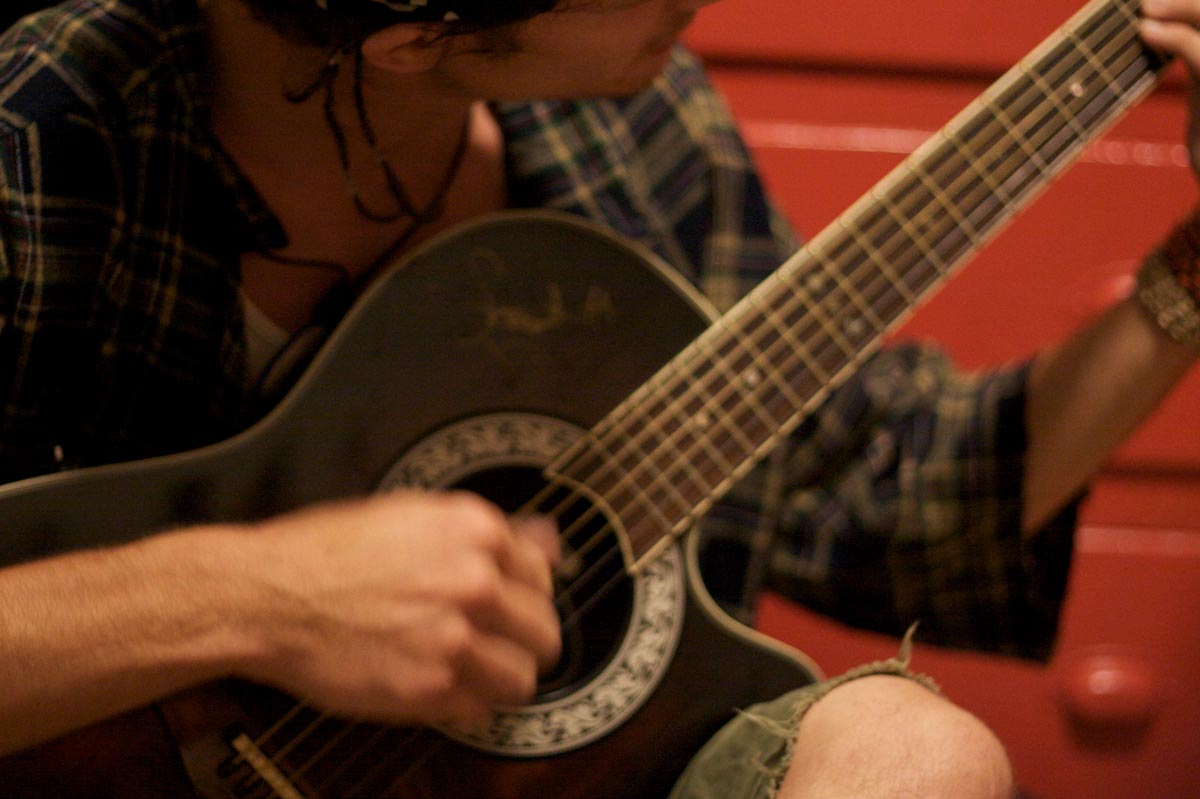Last weekend I went to a fantastic concert, right here in Portland. Enjoying the music, I realized I was not just hearing it, but feeling it as well. There were thirteen musicians on stage, so there was a lot to watch. I felt more deeply relaxed than I had in quite some time. I felt alert but calm, my body let go of tension. My mind was focused and engaged. It seemed like an optimal state of being. Needless to say, it was highly enjoyable.
This experience got me thinking about the fantastic piece, from our guest writer last week as part of the New Perspectives Series on this blog. He explains how he was able to use an evolutionary perspective to make life changes that helped improve his mental health. His perspective is that if we consider the types of foods, activities, and environments we were evolved to thrive in, we can start to understand why the modern world is stressful to our minds and bodies.
He suggested some key ways that we can help our bodies and minds function more optimally in our modern environment: eating food that at least resembles the food our ancestors ate, moving our bodies, and being outside more often. I have also observed that these changes do promote well-being. At the concert, I began to think about what else might help promote well-being from an ancestral perspective? I came up with some more ideas, but first let me explain more about the “problem”…
It seems to me that the majority of Americans are stressed out much of the time. When I ask people in the office how often they feel relaxed, most say they are NEVER relaxed. This is a big problem.
I think using an evolutionary perspective is helpful in understanding why we are stressed and why we seldom have relaxation. I think it has to do, at least in part, with our primitive fear response. The oldest part of the brain is the region that is responsible for responding to threats from the environment by increasing heart rate, allowing blood to rush to the limbs, directing oxygen to fill the lungs, tensing muscles, elevating emotions and disabling reasoning skills. We are ready to take on the predator by fighting or fleeing, and hopefully surviving the outcome. This system probably worked well for our ancestors, since here we are today!
This fear-driven fight or flight response was optimal in an environment where big predators lived and we needed a fast and effective way to survive. Our current environment is much different. Even in Maine, I rarely encounter a predator! However, our brain still perceives “threats” from anything potentially stressful, even an upcoming test, a work assignment, a fleeting negative thought, or even a memory of an earlier time where we felt unsafe. A fight or flight response is not picky. If a stimulus, internal or external, seems “scary” it will trigger the system to have a full-on fear response. The problem is the fight or flight response will not protect us from a test or assignment or a negative thought. Instead, most people are confused as to why they are feeling this natural response, which, absent the need to fight or flee, is highly uncomfortable. Not knowing what it is, often people fear they are going crazy, dying, or having a heart attack. These concerns then make us further afraid, increasing the duration of the fear response. We call these “symptoms” panic attacks and anxiety.
I think it’s very interesting that we have the same physiological response to real or just perceived threats. The bear is the same to my brain and body as an algebra test (assuming that I’m fearful of a math test, which is probably pretty accurate). Knowing this makes me a lot more aware. I don’t want to make my body and brain go through something that I don’t need to. I try to have the discipline to catch my thoughts and say, “Don’t go down that track, you’ll just have a completely unnecessary fear response.” I read recently that we are actually more resilient to emotional pain if we are less anxious (I’ll keep looking for that source and update this post when I find it). So there is only a disadvantage to firing off the fear system without a true physical risk to life or limb.
If you think you are experiencing the fear response on a regular basis, you may need help learning how to respond to it differently, trigger it less often, and get out of a vicious cycle. That is where counseling can be very helpful and probably necessary to get some relief.
For people who are recovering from panic and anxiety or for folks who want to do more to reduce vulnerability to  stress and anxiety, I have some ideas. I’ve noticed in my practice that when clients are feeling less anxious, they almost always start to engage in a creative project. I know things have turned a corner when someone comes in and talks about painting for the first time in years, or picking up a musical instrument that they used to love to play. Sometimes, it’s just that they have music going in the background, are singing in the shower, or are laughing more with friends. I’ve started to wonder if things like music, art, dancing, laughter, reading, writing, relaxation, fun, celebration are cues to our brains that we are enjoying a period of safety and abundance. Maybe it cues the fear response to chill out for a while.
stress and anxiety, I have some ideas. I’ve noticed in my practice that when clients are feeling less anxious, they almost always start to engage in a creative project. I know things have turned a corner when someone comes in and talks about painting for the first time in years, or picking up a musical instrument that they used to love to play. Sometimes, it’s just that they have music going in the background, are singing in the shower, or are laughing more with friends. I’ve started to wonder if things like music, art, dancing, laughter, reading, writing, relaxation, fun, celebration are cues to our brains that we are enjoying a period of safety and abundance. Maybe it cues the fear response to chill out for a while.
I believe these aspects of thriving are essential to being well. I also think they may be the factors that help keep us out of a constant fear response. Our ancestors did a lot to make sure our species survived into the 21st century. We can learn to thrive now, but we need to be careful what messages we give our brains and bodies. Nourishing food, sleep, social connection, music, art, laughter, dance are all markers of thriving. Things like going to a concert help us recognize that we are not just surviving, but can have celebration and abundance. Learning how to manage our thoughts, feelings, and natural responses can give us new insights into ways to be peaceful in our minds and bodies.
What do you do to thrive?


Matt and I routinely go to concerts to de-stress and just have fun. We particularly like loud concerts where we can dance and since and yell like kids! You gotta take that time to forget about the stresses of life and just live. In my home office, I surround myself with messages and art that inspires me and makes me smile. Visual stuff definitely helps me calm down.
I think those are great ideas. I think it’s important to think of art and music as essential parts of our lives and not as “extras.” I think I need to work on having more beautiful things in my environment, that’s a great idea. Thanks!
I love the idea that enjoyable, vibrant activities tells our fear response to settle down. This was an awesome post, Hannah.
Thanks, Lynn. I don’t know for absolute sure that my theory is correct, but I think it’s true based on my observation. It something I’m going to keep looking in to. I know for sure that having enjoyable activities decreases depression and that they only enrich our lives (there aren’t any negative “side-effects.” I also believe they may quell or prevent anxiety but we will have to see what research comes out of this topic.